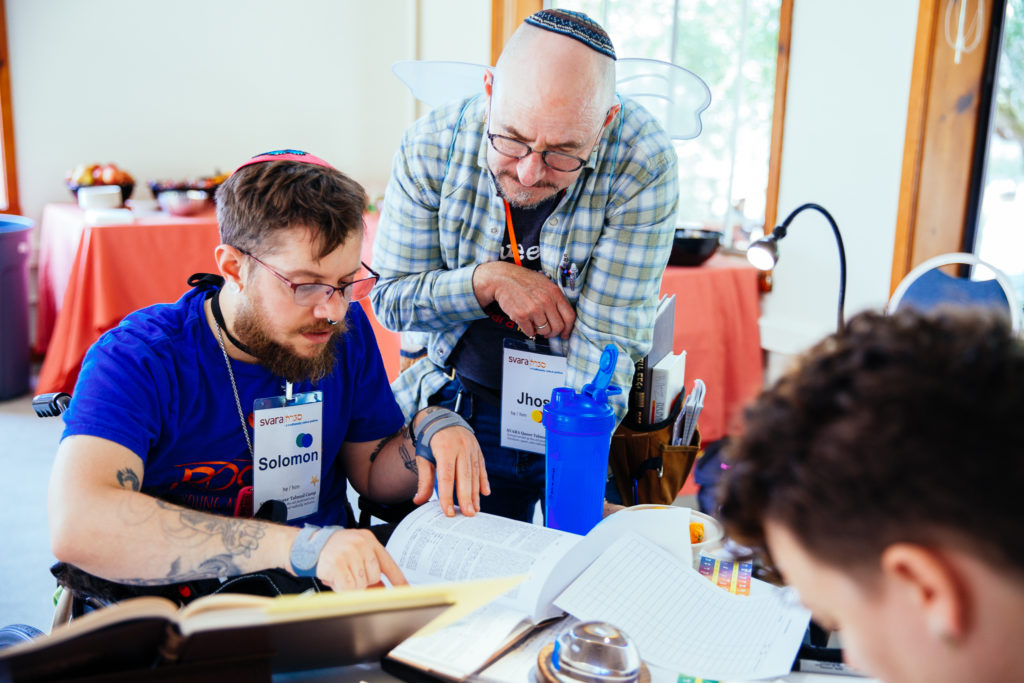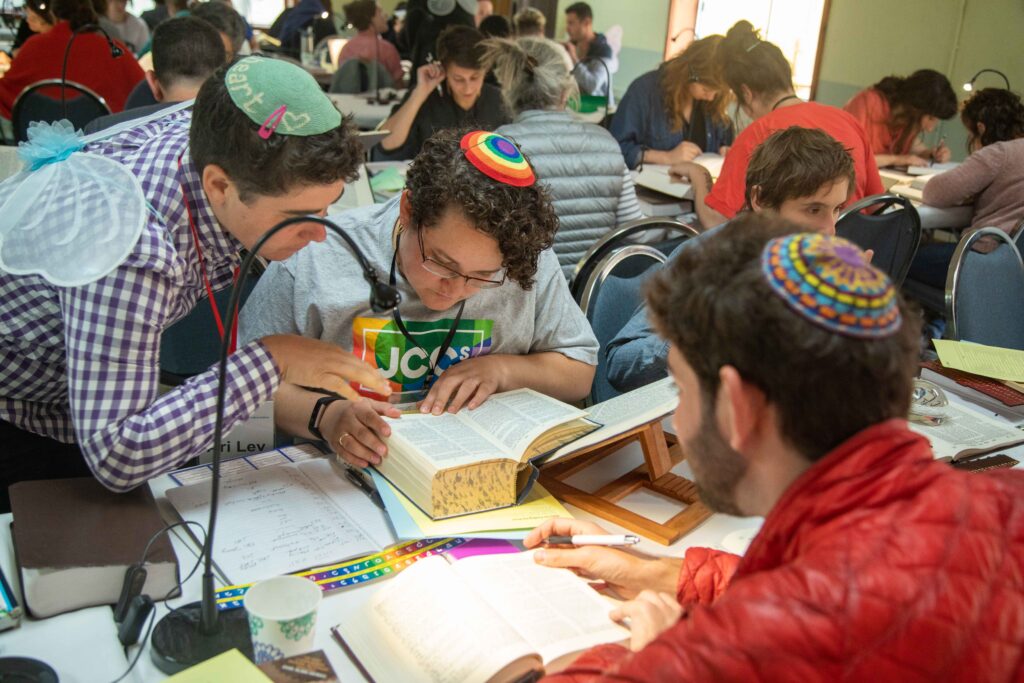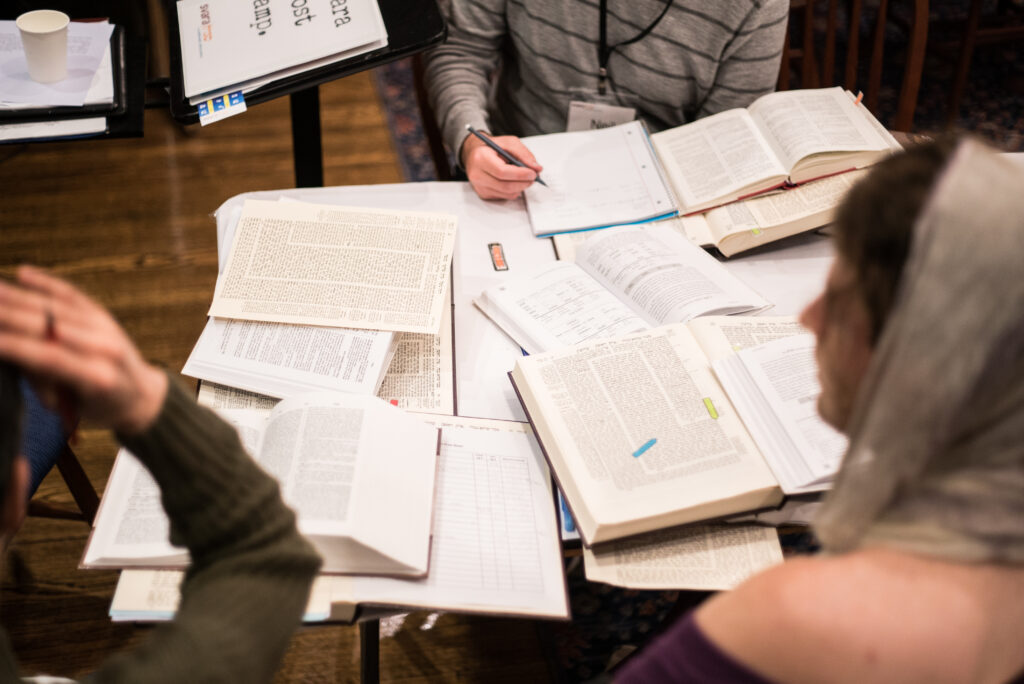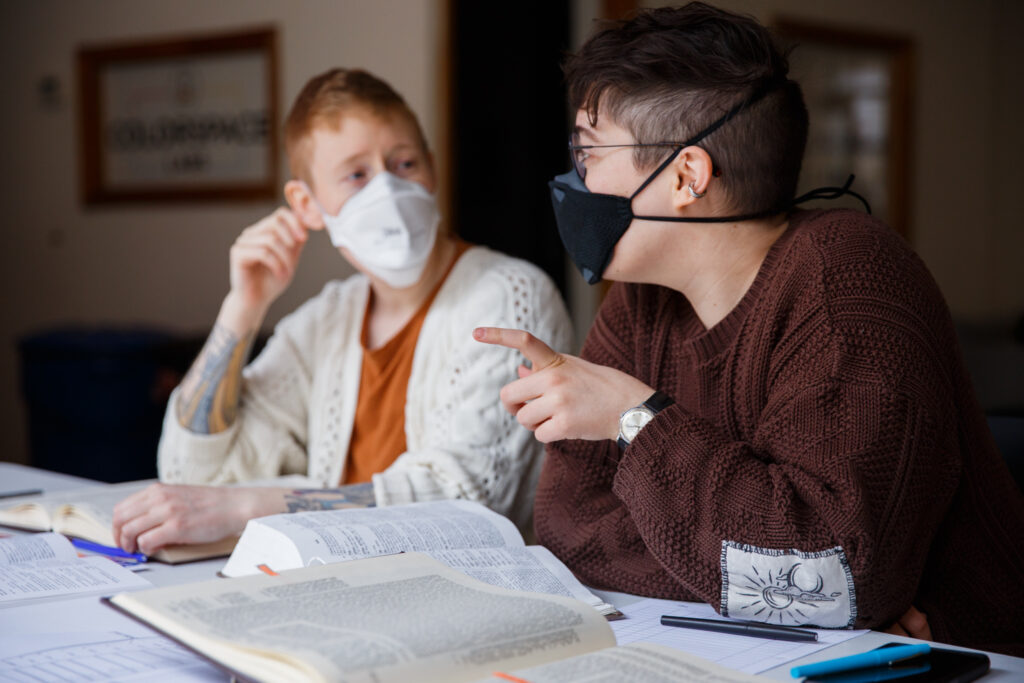At SVARA, we talk a lot about what it means to sniff out a crash. Rabbi Benay Lappe (whom I’ve personally taken to calling the ReBeL) teaches that folks who have been marginalized or “othered” are often the first people who notice when the paradigms of normalcy start to disintegrate; often it’s the queer folks who have already forged a new path by the time society’s hallowed establishments turn to rubble. Well, folks, though my schnozz has never been still, it has been snuffling and twitching wildly for the last 7 years. I was reading an article in the New York Times this week, and it hit me that while Liz Cheney and I have shared the same worries about our country for a long time, we now agree on the source of our worries. That kinda zapped me… Because it’s one thing for a sideways queer Jew like me (whose sexuality was illegal in at least 13 states until 2003) to be worried about the direction our country is heading, but an establishment gal like Liz? I’m like, uh-oh….
So, what does Jewish culture, wisdom, history, and spiritual practice offer us in a time like this?
A bunch of crashes and burns, a few 180-degree turns, and a lot of messy, imperfect experiments to find a surprising, spinning, and sacred path forward.
Studying last week’s parashah, Noach, last week, I was struck by the moment when—after the 40-day deluge that submerged the earth, drowning everything not aboard their seaworthy vessel that tossed and spun on the wilding waters for another 325 days—some semblance of “dry land” emerged from the slowly retreating death soup, Noach and the rest of the ancient mariners—human, beast, reptile, and avian—disembark.
וַיִּבֶן נֹחַ מִזְבֵּחַ לַיהֹוָה וַיִּקַּח מִכֹּל הַבְּהֵמָה הַטְּהֹרָה וּמִכֹּל הָעוֹף הַטָּהוֹר וַיַּעַל עֹלֹת בַּמִּזְבֵּחַ׃
“And Noach built an altar for God; and took of every acceptable beast, and of every acceptable bird, and offered burnt-offerings on the altar.” (Genesis 8:20)
I was learning with my friend and colleague, R. Jennie Chabon, last week and she shared a teaching she had learned regarding this pasuk (verse or sentence of Torah):
“So, when they got off the ark, the world they walked back into had been underwater for a year. Everything was wet, through and through. And Noach feels compelled to make a burnt offering. Have you ever tried to build a fire with soaking wet wood? How feasible is it for one to light a fire with logs that had been sitting at the bottom of a lake for a year? Not likely, right? So where did Noach get the wood for his altar? He chopped up the damn boat. And where did he get the animals for the offering? Yeah. The very structure that had been his home, that had kept his whole family safe during the flood, he chopped up and burned. The animals that had sustained them, that they had cared for, Noach turned into burnt offerings.”
This is the gritty reality of surviving a crash. Sometimes we are faced with sacrificing the only security we have; we find ourselves confronting overwhelmingly grim conditions; we have no choice but to gamble, stretch, innovate, and change, which takes all the creativity, courage, and willingness to fail-learn-and-grow that we can muster. Still breathing? Build an altar of gratitude. Stand in awe before the powerful flame that burns off ego, anger, and arrogance. Gather the offerings. Sacrifice shame, arrogance, regret, remorse. Wade through the mud, find a dry patch, release the past, rebuild. That’s rough and tumble indigenous Judaism. Be your best self, weather the storm, burn the boat. Transform or die.
Arguably, Judaism’s sweeter root lies a few chapters later, in this week’s parashah, when a middle-aged nobody from Ur of the Chaldeans experiences a mind-blowing spiritual epiphany (aka a crash), that like Noach, launches him and his familiar entourage off on a land-based spirit quest:
וַיֹּאמֶר יְהֹוָה אֶל־אַבְרָם לֶךְ־לְךָ מֵאַרְצְךָ וּמִמּוֹלַדְתְּךָ וּמִבֵּית אָבִיךָ אֶל־הָאָרֶץ אֲשֶׁר אַרְאֶךָּ׃
And God said to Avram, “Go! To yourself! Leave from your land, from your motherland, from your father’s house to a land that I will show you.” (Genesis 12:1)
Crashes are sometimes internal. Inexplicably, as if called by God, we no longer fit in our family, religion, culture, or country. Even moving into adulthood, inevitable as it is, catalyzes some degree of crashing; though if we are lucky we are able to forge out on our own without losing our homebase entirely. Add to that a few curveballs like unexpected gender or sexual expression, spiritual or religious awakening, or accepting a new political perspective, and the likelihood that we will suffer some permanent loss increases. The inner world is as shifty as the outer world, but whether internal or external, once the gears of revelation start turning, we are going to be spun. The force of it will affect everyone and everything around us. And then, destabilized and twirling, we face the same choices as Noach and Avram—torch the ship and start anew; pack our bags and go look for our truth; or hunker down to ride out the catastrophe in place.
The frame we put around learning at SVARA and SVARA-inspired spaces suggests another option: synthesize the ideas, practices, and values from within and without. Learn from the wreckage and the fresh start, assess where we came from and take a chance on where to go next, listen to our own intuition as well as the foreign concepts we meet on the road, and use what works as we meet each challenge along the journey. This middle way has the advantage of being endlessly flexible and the disadvantage of being kind of high-maintenance. But in the unpredictable, volatile, and destabilizing times we live in, being adaptable is a key to survival. It takes energy to stay nimble, but fostering spiritual agility may be the key to staying ahead of the cascading rubble.
These are fast moving, extremely confusing, provocative, and stressful times worldwide. A lot is crashing. I can’t help but think about the spiritual challenge, a mini-crash if you will, I face when I find myself even a little bit in sync with politicians like Liz Cheney, and I’m sure sister Cheney feels the same way about folks like me. But, isn’t this exactly what we are supposed to learn from all the arch rivals in the Talmud?
בֶּן זוֹמָא אוֹמֵר, אֵיזֶהוּ חָכָם, הַלּוֹמֵד מִכָּל אָדָם, שֶׁנֶּאֱמַר(תהלים קיט) מִכָּל מְלַמְּדַי הִשְׂכַּלְתִּי כִּי עֵדְוֹתֶיךָ שִׂיחָה לִּי.
Ben Zoma says, “Who is wise? Those who learn from everyone. As it is said, (Psalms 119:99) ‘From all who taught me I have gained understanding’” Pirke Avot 4:1
The house of Hillel and the house of Shammai in the 1st century BCE set the tone for how to stay open to good ideas, decent values, or points of agreement with one’s adversaries. This ability, to liberate and embrace the good, wherever we find it, is one of the keys to Judaism’s survival through two thousand years of exile and calamity. And yes, it is schmutzic. The first rabbi, Yochanan ben Zakkai, was friendly enough with the Roman commander Vespasian to be granted safe passage out of Jerusalem’s war-torn hellscape, in no small part because of the intra-Jewish fighting there. Throughout its history, Jewish survival often depended on points of connection with frenemies, those folks with whom there existed disagreement and respect, conflict and an acceptance of shared humanity, even judgment that was tempered by curiosity and compassion.
Conflictual relationships are predictably painful. Throw in different moral foundations, opposing politics, and contradicting values, and it becomes hard to believe that there could ever be any common ground. But rabbinic Judaism has made an art form out of finding that common ground and building on it. The Talmud is a study in how to preserve multiple opinions on every issue and to consider a wide range of possible answers for every question. With grace. And love. And awe. And most of all good humor.
In this hour of global, national, and local discord, I hope we choose a path that would make the sages weep with pride. May we be a generation of kaleidoscopic thinkers, radically inclusive problem solvers, and courageous listeners. May we live creatively and adventurously, shed judgment and dogma, honor our svara and let our voices be heard; may our hearts be strong and open, and may we have the guts to learn from everyone.







